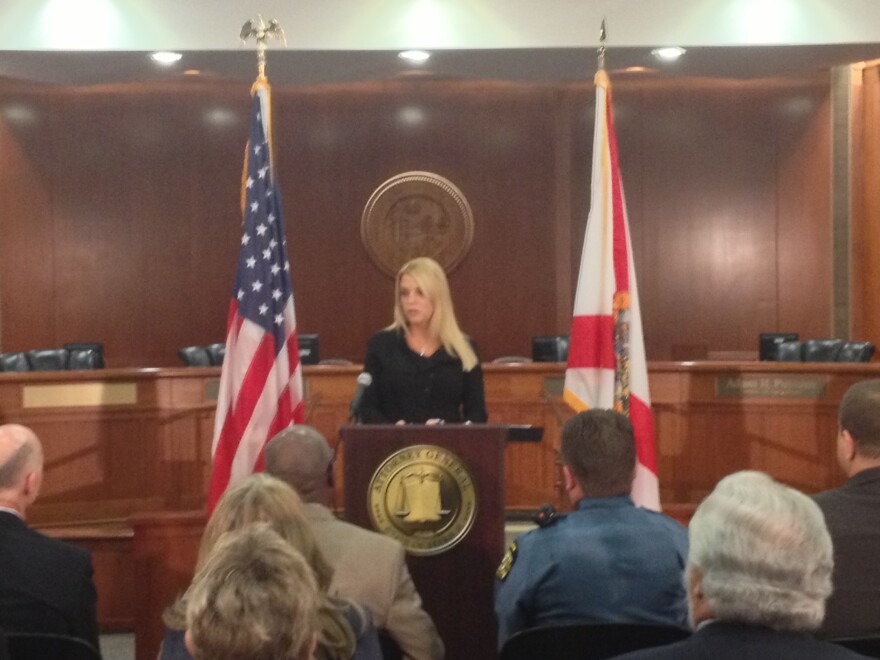
A new national study shows federal prosecutions of human trafficking cases have increased 400-percent in the last five years. And Florida ranks third in the nation in calls to the national human trafficking hotline. More than a thousand people in Florida reported trafficking crimes in 2012 but, law enforcement officials fear the actual number of trafficking cases could be much higher. Human rights lawyer Terry Coonan suggested it’s probably because real trafficking crimes aren’t as visible as what we see in some Hollywood movies.
“Nationwide they estimate maybe 18,000 people annually are brought in for human trafficking and it’s rarely kidnapping. That sort of scenario that we see in movies like Taken, with Liam Neeson, we hardly ever see,” Coonan said.
Hollywood theatrics aside, human trafficking is a dramatic crime. And according the Syracuse research firm Transactional Records Access Clearinghouse, or TRAC, prosecutions of trafficking cases have seen an equally dramatic increase in recent years – about fourfold. But, TRAC’s Co-Director David Burnham explained those numbers stem from a very specific type of human trafficking.
“The study we put up looked at prosecutions under a law specifically passed by Congress to deal with trafficking. And under that law the federal government, the prosecutions by the federal government, have gone up very sharply,” Burnham said.
The federal law Burnham used in the study deals with sex-trafficking and was passed in 2000. But Terry Coonan said other forms of trafficking are far more common in the Sunshine State.
“Now here in Florida we do believe that we probably have more labor trafficking victims than we do in sex trafficking,” Coonan remarked.
Human rights advocates and law enforcement officials agree tracking cases in the state is close to impossible because the crime takes so many forms. And that’s reflected by the wide range of statistics that exist. Only a small fraction of all trafficking reports, sex or labor, make it to a courtroom. And not all prosecutions end in convictions for trafficking crimes. And Giselle Rodriguez, spokeswoman for the Florida Coalition Against Human Trafficking, argued there’s no central database for human trafficking statistics because local and state agencies don’t always communicate with one another.
“Our agency has tried to obtain information on how many cases have been found throughout the state and it’s been very hard to try and compile that information. So, at this point we really just do not have any accurate information on what is actually happening in the state of Florida,” Rodriguez reported.
But, state officials say that’s changing. With the passage of the Florida Safe Harbor Act about a year and a half ago and the consolidation of the state’s human trafficking statutes, law enforcement has a much more effective investigative toolkit. Florida Attorney General’s office spokeswoman Jen Meale said her office is also pushing for more inter-agency cooperation.
“So, Attorney General Bondi has worked with the business community, law enforcement and state lawmakers to approach this from an ‘all hands on deck’ perspective,” Meale avowed.
State officials say it’s that perspective that’s leading to more prosecutions and there is one statistic that backs that up. The same research that shows the Sunshine State third in trafficking cases also rates it in the top five when it comes to addressing the problem.

